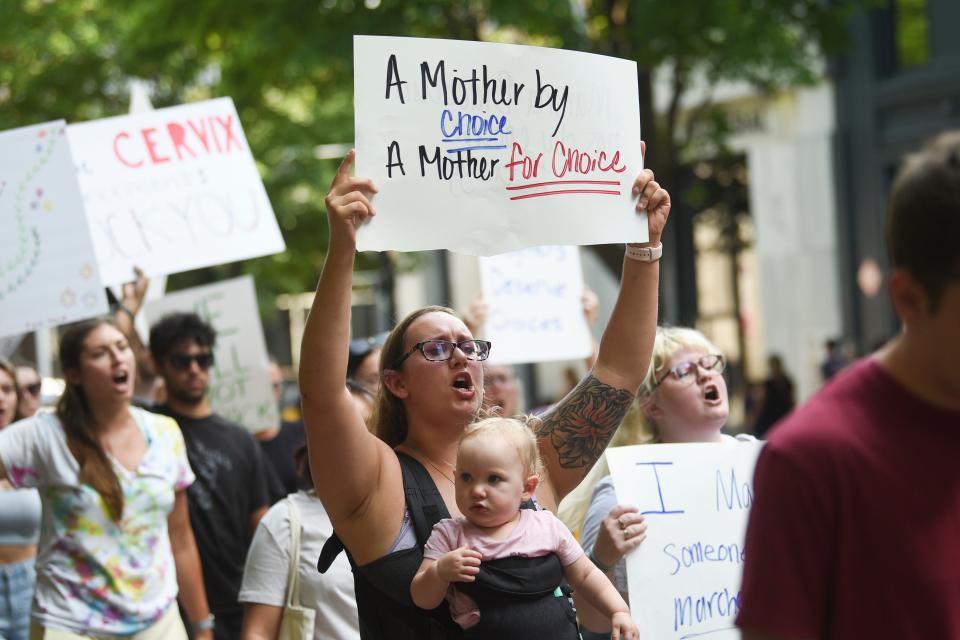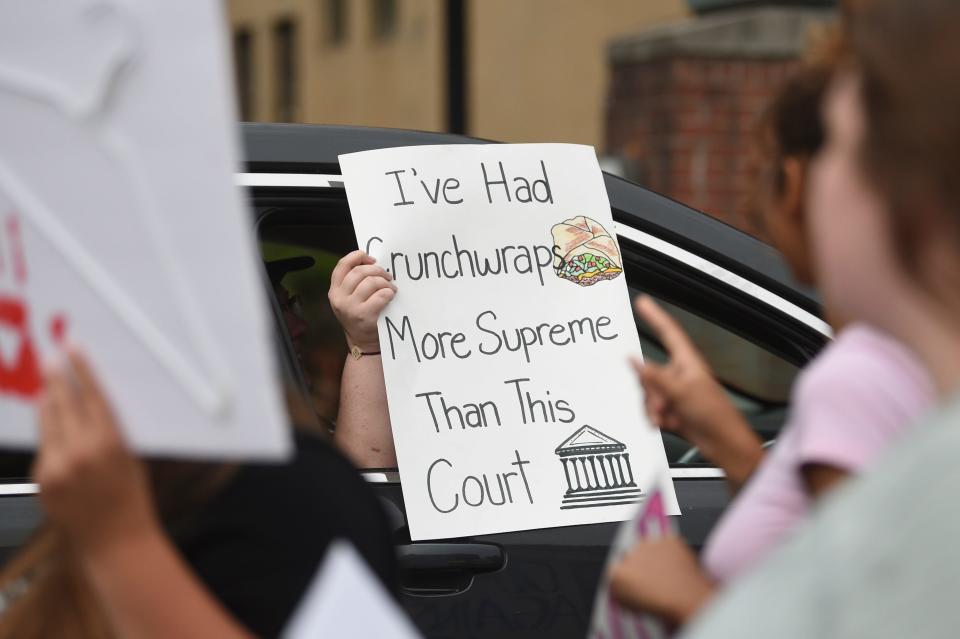The other fellow might be right. But not so much about abortion | Opinion
I was recently asked to explain how I would teach critical thinking skills around Howard Baker’s reminder that “The other fellow might be right.” Or as Robby George and Cornel West noted in 2017, “All of us should be willing — even eager — to engage with anyone who is prepared to do business in the currency of truth-seeking discourse by offering reasons, marshaling evidence, and making arguments.”
We can’t even acknowledge the other person’s possibility of being right if we can’t admit to ourselves that they have reasons for their opinions and beliefs. That’s incredibly difficult unless we can understand both their and our assumptions and the values and logic they use to form their preferences. This means opening the critical-thinking toolbox.
So what’s in that toolbox? It involves the art and science of examining any argument, identifying its assumptions and the evidence collected and presented, and using logic and sound methods to make conclusions from the evidence.

We don’t hear so much about critical thinking anymore, at least in the social sciences and humanities. There’s a lot more attention paid to preferred outcomes and conclusions. And some in the academy, at least, are openly dismissive of discourse based on reasoning, evidence and argumentation.
Hear more Tennessee voices: Get the weekly opinion newsletter for insightful and thought-provoking columns.
That’s regrettable. Most of the most divisive issues on the national agenda do leave room for evidence, argumentation and, eventually, compromise. People bring strong preferences and different visions of a good and just society to the debates over energy policy, guns and even over convenience of voting.
So yes, disciplined study will reveal whether turnout among minorities in Georgia will or will not be affected by legislation passed last year. That’s knowable through sound, objective research methods. Likewise, we’ll soon see whether eliminating overly restrictive state laws regarding handgun permits will or will not affect gun violence.

Your state. Your stories. Support more reporting like this.
A subscription gives you unlimited access to stories across Tennessee that make a difference in your life and the lives of those around you. Click here to become a subscriber.
Two fundamental beliefs in conflict
Ah, but there’s an exception. We can’t treat abortion the same way. It’s a toxic outlier among the universe of divisive issues. The Supreme Court’s decision in the Dobbs case highlighted the limits of addressing, let alone resolving, some issues through civil discourse. This issue is defined on the front end between competing fundamental values. A woman’s right to choose what happens with her own body is a fundamental value. So is the protection of life of the unborn. These fundamental beliefs are in conflict.

Dealing with abortion is so difficult and so enduring because very few people staking out ground on either side believe that those on the other side might be right. It won’t be resolved by logic, evidence and disciplined reasoning. That leaves advocacy — more like what an attorney does in representing a client. That means starting with the conclusion and using emotional rhetoric and selective evidence to lead others to join the team. There’s little room for nuance.
Roe v. Wade was the closest thing to a compromise
Unfortunately, when we look in the rear-view mirror, we see that a rapidly fading Roe v. Wade, with all its constitutional uncertainty, was the closest thing to a compromise. It recognized both a women’s right to choose up to a certain point in the pregnancy and the value of the life of the unborn past that date.

THE LATEST NEWS RIGHT AT YOUR FINGERTIPS
Get the latest local news, sports scores and more directly on your phone. Download the free Knox News mobile app.
The court has punted the regulation of abortion back to the states. And now it's about which position prevails, with little middle ground amidst a rush to the extremes. Some states have already outlawed all abortions for any reason. That’s the pure pro-life position. Legislation legislation that passed the U.S. House removed virtually all restrictions. It’s the pure pro-choice position. States are free to follow. Others will see the wisdom in staying with their Roe-like status quo, for now.
It’s more important than ever to teach critical-thinking skills. A big part of any skill set is knowing its limits. Then we need a reach into the nearby box of empathy skills. Others may not be right. So if you can't respect, at least understand their values.
William Lyons is Director of Policy Partnerships for the Howard Baker Jr. Center for Public Policy and Professor Emeritus of Political Science at the University of Tennessee. He also served as Chief Policy Officer for Knoxville Mayors Bill Haslam, Daniel Brown and Madeline Rogero.
The views and opinions expressed are those of the author and do not necessarily reflect the official policy or position of the Howard Baker Jr. Center for Public Policy or the University of Tennessee.
This article originally appeared on Knoxville News Sentinel: The other fellow might be right. But not so much about abortion

